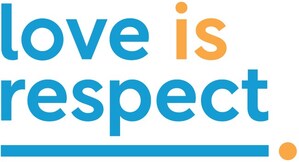AUSTIN, Texas, Sept. 30, 2015 /PRNewswire-USNewswire/ -- Today, the National Domestic Violence Hotline (The Hotline) released survey results that showed a strong disconnect between victims of domestic violence seeking help from law enforcement and the support those authorities are tasked with providing. There are a number of factors that create major obstacles for victims attempting to cope with domestic violence – from distrust of the authorities to fear of punishment from their abusive partner. Both victims who had previously called the police and those who had never called the police shared a strong reluctance when it came to turning to law enforcement for help.
In order to shed light on these factors, The Hotline conducted a survey via its chat services. Professor TK Logan, a recognized expert on partner violence and stalking at the Department of Behavioral Sciences at the University of Kentucky was instrumental in helping construct and analyze the survey, which includes both quantitative data and non-personally identifying quotes.
"Our objective was to gain insight into why women who experience domestic abuse are reluctant to call the authorities," said Katie Ray-Jones, CEO, the National Domestic Violence Hotline. "By gathering data and better understanding these insights, our hope is that we can highlight the importance of law enforcement receiving comprehensive training that will focus on treating domestic violence victims and survivors with dignity and respect."
Survey participants who had never called the police shared very specific concerns regarding their fears and personal barriers to involving law enforcement. In fact, 80 percent stated that they were somewhat or extremely afraid to call the police. Reasons include:
- 60 percent stated that they did not want to involve the police due to the desire for privacy
- 44 percent said that they feared retaliation from the abuser or the abuser's friends and family
- 22 percent said that they wanted to protect their children
The survey also found that calling the police did not necessarily allay concerns about the victim's own safety or wellbeing. In fact, when it came to victims who had previously involved the police after a domestic violence incident:
- 1 in 3 victims felt less safe
- 1 in 2 victims felt no difference in safety
- Only 1 in 5 victims felt safer
"There were so many police taking pictures in embarrassing places but not one was a female officer," said one anonymous survey participant. "After his arrest, I received absolutely no support [from the system]…. He was found guilty and pled guilty but still walked even after holding me at gun point and threatening to kill me."
In an effort to reassure victims of domestic violence that law enforcement is there to help and serve them and ensure that future interactions between police officers and victims are productive and beneficial to the victim's safety, the Hotline states that law enforcement responses to survivors must be based on the following principles:
- Treating survivors with respect and dignity
- Giving survivors their "voice" during encounters
- Being neutral and transparent in their actions
The Hotline, a non-profit organization that provides victims and survivors of domestic violence with life-saving tools and immediate, around the clock, confidential and free-of-cost support, questioned more than 637 women who have personally experienced partner abuse. Participants had an average age of 30 years and were predominantly white (56 percent), Hispanic (15 percent) and African-American (11 percent).
To read all of the recommendations from the Hotline, as well as the survey results in their entirety, visit: http://www.thehotline.org/resources/law-enforcement-responses.
In addition, these findings will be presented at the White House Domestic Violence Summit in October, as part of the Hotline's larger Domestic Violence Awareness Month plans.
Supporting Resources
- Become a fan of The National Domestic Violence Hotline on Facebook
- Follow The National Domestic Violence Hotline on Twitter
- Visit http://www.loveisrespect.org/ for information and support surrounding abusive dating relationships
About The National Domestic Violence Hotline
The National Domestic Violence Hotline is a non-profit organization established in 1996 as a component of the Violence Against Women Act (VAWA). Operating around the clock, confidential and free of cost, The Hotline provides victims and survivors with life-saving tools and immediate support. Callers to the hotline 1-800-799-SAFE (7233) can expect highly trained advocates to offer compassionate support, crisis intervention information and referral services in more than 200 languages. Visitors to TheHotline.org can chat live with advocates and they can find information about domestic violence, safety planning, local resources, and ways to support the organization.
The Hotline relies on the generous support of individuals, private gifts from corporations and foundations and federal grants. It is funded in part by Grant Number 90EV0407/03 from the U.S. Department of Health and Human Services (HHS)/ Family Violence Prevention and Services Program, a division of the Family and Youth Services Bureau in the Administration for Children and Families. Its contents are solely the responsibility of the authors and do not necessarily represent the official views of the Administration for Children and Families or the U.S. Department of HHS.
Press Contact:
Cameka Crawford
[email protected]
803-470-NDVH (6384)
Photo - http://photos.prnewswire.com/prnh/20150929/272123-INFO
Logo - http://photos.prnewswire.com/prnh/20131003/DA91382LOGO-b
SOURCE The National Domestic Violence Hotline
Related Links
WANT YOUR COMPANY'S NEWS FEATURED ON PRNEWSWIRE.COM?
Newsrooms &
Influencers
Digital Media
Outlets
Journalists
Opted In





Share this article